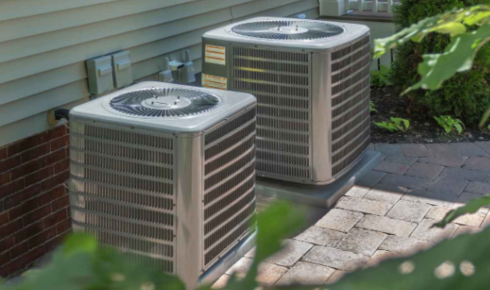A well-functioning residential HVAC system is essential for maintaining a comfortable and energy-efficient home. HVAC, which stands for heating, ventilation, and air conditioning, plays a vital role in regulating indoor temperatures, improving air quality, and reducing energy costs. By understanding how a residential HVAC system works and exploring its benefits, homeowners can make informed decisions to enhance their living spaces.
Understanding the Role of a Residential HVAC System
A residential HVAC system is designed to provide both heating and cooling, ensuring your home remains comfortable throughout the year. During the winter, the heating component warms your home, while in the summer, the air conditioning system keeps the indoor temperature cool and refreshing. Beyond temperature control, HVAC systems help manage humidity levels, which is important for comfort and for preventing issues like mold growth and damage to wooden furniture or flooring.
Modern systems also incorporate ventilation, which ensures a steady flow of fresh air. Proper ventilation removes stale air and helps circulate clean air throughout your home. This not only contributes to a healthier living environment but also prevents unpleasant odors and improves overall indoor air quality.
Enhancing Comfort in Every Season
One of the primary benefits of a residential HVAC system is the consistent comfort it provides year-round. Unlike older heating or cooling units, modern HVAC systems are designed to respond quickly to temperature changes, maintaining a stable indoor climate. With features like programmable thermostats, homeowners can customize settings to match their schedules, ensuring the home is comfortable when needed and conserving energy when rooms are unoccupied.
Additionally, HVAC systems can distribute air evenly across all rooms. This prevents hot or cold spots, making every part of your home equally comfortable. For families with children or elderly members, this consistency is particularly important, as it helps maintain a safe and pleasant environment for everyone.
Improving Energy Efficiency
A residential HVAC system can significantly improve your home’s energy efficiency. Modern systems are engineered to use less energy while delivering optimal performance. High-efficiency models consume less electricity or fuel, reducing monthly energy bills and minimizing environmental impact.
Regular maintenance, such as cleaning filters and checking for leaks, further enhances efficiency. An efficiently operating system doesn’t have to work as hard to maintain the desired temperature, which not only saves money but also extends the life of the HVAC components. Investing in an energy-efficient system can also increase the value of your home, as many buyers now prioritize homes with lower utility costs and sustainable features.
Boosting Indoor Air Quality
Beyond temperature control, a residential HVAC system improves indoor air quality. Air filters and ventilation systems capture dust, pollen, and other pollutants, making the home safer for residents, especially those with allergies or respiratory conditions. Some systems even include advanced filtration options or UV light technology to reduce bacteria and viruses.
Maintaining clean air circulation is essential for a healthy home. Proper humidity control also prevents excessive dryness or moisture, which can lead to health issues and damage to your home’s structure. A well-maintained HVAC system ensures that every breath you take indoors is fresh and clean.
Convenience and Smart Features
Modern residential HVAC systems come equipped with smart technology that enhances convenience and usability. Wi-Fi-enabled thermostats, mobile apps, and automated climate controls allow homeowners to monitor and adjust settings from anywhere. This level of control ensures your home is always comfortable, even when you are away, and helps optimize energy usage without sacrificing convenience.
Smart systems can also provide alerts for maintenance issues, filter changes, or potential problems before they become costly repairs. This proactive approach helps homeowners avoid unexpected breakdowns and keeps the system running efficiently for years to come.
Conclusion
A residential HVAC system is more than just a heating or cooling solution; it is a vital part of a comfortable, energy-efficient, and healthy home. By providing consistent temperatures, improving air quality, and reducing energy costs, a modern HVAC system enhances daily life for homeowners. Investing in a high-quality system and maintaining it regularly ensures that your home remains a safe, pleasant, and efficient living space for years to come.

